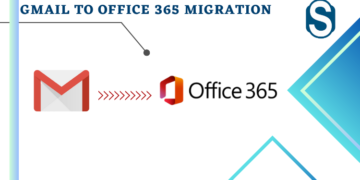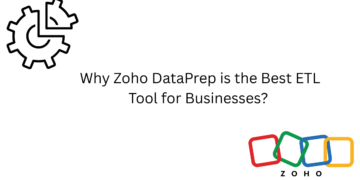Introduction
In today’s digital economy, customer data is among the most valuable assets a business holds. As enterprises increasingly rely on customer relationship management (CRM) platforms to streamline interactions, Microsoft Dynamics 365 CRM has emerged as a leading solution for managing customer data, automating sales processes, and personalizing marketing strategies. However, with this digital transformation comes increased responsibility—particularly around data compliance and security. This is where Microsoft Dynamics CRM partners play a crucial role.
From data privacy regulations like GDPR to industry-specific standards such as HIPAA or PCI DSS, organizations face growing compliance obligations. Failing to meet these standards can result in steep penalties, reputational damage, and legal liabilities. Fortunately, trusted CRM partners not only help deploy Microsoft Dynamics solutions but also ensure they are secure, compliant, and future-proof.
Why Data Compliance and Security Matter in CRM Deployments
A CRM system is a repository for a vast range of sensitive information—contact details, purchase histories, communication records, financial data, and more. As cyber threats grow more sophisticated and regulations become stricter, organizations must guarantee that this data is both secure from unauthorized access and compliant with all applicable laws.
Without proper guidance, businesses risk exposing themselves to:
- Data breaches
- Regulatory fines
- Loss of customer trust
- Business disruptions
This is why many organizations turn to experienced Microsoft Dynamics CRM partners to help navigate the complex landscape of CRM security and compliance.
The Role of Microsoft Dynamics CRM Partners in Ensuring Compliance and Security
1. Understanding Industry-Specific Compliance Requirements
CRM partners bring deep expertise in aligning Microsoft Dynamics with the specific regulatory environment of each industry. Whether it’s GDPR in Europe, HIPAA in healthcare, or CCPA in California, experienced partners tailor CRM configurations and policies accordingly.
Example: For a healthcare provider, a CRM partner ensures that Dynamics 365 is configured with role-based access control, encryption for data in transit and at rest, and audit logging to meet HIPAA requirements.
2. Secure Deployment Architecture
A secure Microsoft Dynamics deployment starts with the right infrastructure design. CRM partners ensure that the architecture includes:
- Encrypted connections (TLS/SSL)
- Virtual networks and subnets for isolation
- Secure authentication protocols (OAuth, SAML)
- Integration with Microsoft Azure Active Directory for identity governance
These measures help safeguard the CRM system from external threats while ensuring internal access is tightly controlled.
3. Data Classification and Access Control
Not all data is equal. CRM partners help organizations classify data based on its sensitivity and implement role-based access to restrict who can view or modify specific information.
Key Strategies Used:
- Defining user roles and privileges
- Setting field-level security for sensitive data
- Configuring business units for organizational segmentation
- Applying data loss prevention (DLP) policies
This granular control ensures only authorized personnel can access confidential customer information, reducing the risk of accidental exposure or insider threats.
4. Automated Compliance Auditing and Monitoring
Microsoft Dynamics CRM can generate audit logs for user actions, data changes, and access attempts. CRM partners implement and configure these logs to:
- Track data access and modifications
- Monitor suspicious activities
- Generate compliance reports for audits
Through integration with Microsoft tools like Microsoft Purview or Azure Monitor, CRM partners provide a robust monitoring environment that alerts businesses of any compliance violations or anomalies.
5. Secure Data Integration with Third-Party Tools
Modern businesses often integrate Microsoft Dynamics with third-party apps such as ERP systems, marketing platforms, or customer service tools. CRM partners ensure these integrations are secure and compliant.
They use:
- Secure API endpoints
- OAuth tokens for authentication
- Managed connectors with predefined security settings
CRM partners validate each integration to prevent data leakage, unauthorized access, or compliance gaps.
6. Data Encryption and Retention Policies
Microsoft Dynamics 365 supports advanced encryption protocols, but partners go a step further. They help configure:
- Encryption keys managed through Azure Key Vault
- Custom retention policies for different data categories
- Automatic deletion workflows for expired records
These measures ensure that data remains encrypted and is retained only as long as legally required.
7. Disaster Recovery and Business Continuity Planning
Data compliance isn’t just about protection; it’s also about availability. CRM partners develop business continuity strategies that include:
- Regular backup schedules
- Geo-redundant storage
- Rapid disaster recovery protocols
These efforts ensure that customer data is not lost during unexpected outages and can be quickly restored—essential for maintaining both compliance and service reliability.
8. User Training and Awareness Programs
Even the most secure system can be compromised by user error. CRM partners often provide customized training for employees to educate them on:
- Recognizing phishing attempts
- Handling customer data securely
- Following compliance procedures when using CRM tools
By fostering a culture of security, partners minimize human-related vulnerabilities in Microsoft Dynamics deployments.
9. Staying Ahead with Continuous Compliance Updates
Regulations evolve, and so do security threats. Microsoft Dynamics CRM partners stay updated with the latest legal and technical developments to:
- Patch vulnerabilities promptly
- Adjust configurations as regulations change
- Apply updates to privacy policies and consent management tools
They also collaborate with Microsoft’s own compliance roadmap to ensure that their clients are never caught off guard by new requirements.
Case Study: Ensuring GDPR Compliance for a European Retailer
A mid-sized European retailer sought help from a Microsoft Dynamics CRM partner to align its CRM system with GDPR. The partner conducted a full compliance audit, classified all customer data, implemented consent tracking, and developed a data export protocol for fulfilling “right to access” requests. Within weeks, the retailer transformed its CRM into a GDPR-compliant solution—avoiding legal risks and boosting customer confidence.
Benefits of Working with CRM Partners for Compliance and Security
- Reduced Risk Exposure: Experts identify and close security loopholes early.
- Faster Deployment: Compliance and security strategies are integrated from day one.
- Audit Readiness: Accurate logs and reports simplify external audits.
- Peace of Mind: Businesses can focus on growth, knowing their CRM data is safe and compliant.
- Tailored Security Strategies: Partners deliver solutions that align with your unique risk profile and sector-specific needs.
Conclusion
As data privacy and cybersecurity move to the top of the business agenda, organizations must take a strategic approach to CRM deployments. It’s not enough to simply use Microsoft Dynamics 365 CRM—companies must implement it in a way that meets modern compliance requirements and withstands emerging threats.
This is why partnering with experienced Microsoft Dynamics CRM partners is not just a smart move—it’s essential. These experts provide the technical, regulatory, and operational guidance needed to turn your CRM investment into a secure, compliant, and trusted platform for customer engagement.


























